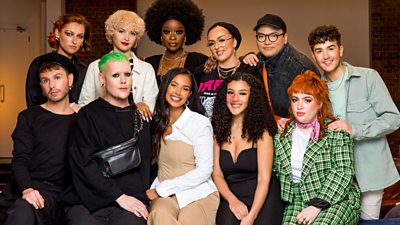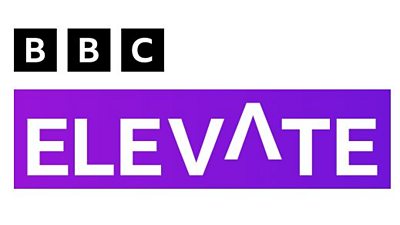Diversity and Inclusion (D&I) is a creative imperative at the BBC. We are committed to serve all audiences around the UK and therefore we must also ensure that our creative teams also reflect British society.
The key to diversity is greater inclusion, it requires more than just a commitment to the D&I agenda to bring about real change and progress across the industry has already been too slow for too long.
Diverse creative talent (both on and off screen) from a wide range of backgrounds brings fresh perspectives, unique insights, experiences and expertise to our content and enables us to continue making world class programmes that have mass appeal.
Our actions will truly demonstrate our intentions, therefore it is important for us to take bold measures that challenge our thinking, perceptions, approach and process.
The actions we’re taking here build on the foundation of our ongoing commitment to the wider diversity agenda; ensuring we remain relevant to all audiences and crucially, helping to drive change across the whole industry.
We will be transparent about these changes and be honest where we think there is more work to be done.
We are committed to working with you, our suppliers and partners across the industry to get this right, and we look forward creating lasting and impactful change.
Glow Up: Showcasing creativity

Overview
To achieve a commission from the £112m spend, TV and Radio suppliers must meet two of three criteria, which support the BBC’s Diversity Code of Practice.
Criteria One:
Diverse stories and portrayal on-screen or on-air
Representing all audiences around the UK
A programme must comply with at least two of the following on-screen/on-air measures to be considered as diverse:
Landmark portrayal: Explicit and majority coverage of a story, character(s) and/or topic(s) related specifically to one or more mis- or under-represented group - i.e. front and centre of the core proposition and narrative.
Incidental and Integrated portrayal: The programme should include representation of one or more mis- or under-represented group – where relevant to that particular story or character/ contributor.
Diverse on-screen and on-air talent: The talent most regularly associated with a programme or series must be from one or more mis- or under-represented group.

Criteria Two:
Diverse Production Leadership
Influential roles off-screen or off-air involved in shaping and making BBC programmes
At least two individuals in senior decision-making roles on a production team should be from one of three under-represented groups: Black, Asian or minority ethnic, disabled and/or working class.
Television key roles:
Scripted: Executive Producer, Director, Writer, Script Editors, Story Producer, Line Producer, Head of Development.
Unscripted: Executive Producer, Series Producer, Head of Development, Production Executive/Line Producer, Production Manager, Director/Producer.
Radio key roles:
Executive Editor or Editor, Technical Producer, Writer, Producer or Assistant Producer, Content Assistant, Production Co-Ordinator, Production Management Assistant

Criteria Three:
Diverse Company Leadership
Senior roles involved in shaping and leading production companies making BBC programmes
At least two out of the following five roles should be held by at least one employee from a black or ethnic minority background, disabled and/or working class. For smaller companies, with fewer than four of the following roles, 50% need to be from these groups.
The roles:
Television: Managing Director, Creative Director, Director of Production, Executive Producer, Head of Development.
Radio: Managing Director, Creative Director, Executive Producer, Director of Programming, Director of Broadcast Operations (or roles with equivalent functions)
Co-productions:
Where one or more production companies come together to form a co-production, the production company who owns the idea i.e. the intellectual property (IP), will need to be diverse-led.
20% off-screen diversity commitment
In TV, this financial commitment is being backed up by a new 20% off-screen diversity request for productions, and applies to all new network commissions from in-house and independent suppliers. This came into force on 1 April 2021.
In Radio, where production teams are typically much smaller and with less market movement, we hope to achieve 20% diverse representation for independent suppliers with 10 or more staff, to be reviewed in April 2024. Our in-house suppliers are covered by the BBC’s workforce targets as part of the BBC’s D&I Plan 2021-23.
Visit the television commissioning site for more detail on TV’s tailored requirements or radio’s diversity pages for more on their commissioners’ bespoke specifications.
-
 Accessing Diverse Talent Discover online resources that support productions seeking to increase the diversity of their on-and-off-screen talent.
Accessing Diverse Talent Discover online resources that support productions seeking to increase the diversity of their on-and-off-screen talent.
Discover more
-
 Code of Practice Progress Report 2022/23 An update of progress on the BBC Creative Diversity Commitment
Code of Practice Progress Report 2022/23 An update of progress on the BBC Creative Diversity Commitment -
 Elevate Supporting deaf, disabled and neurodivergent talent in the TV industry.
Elevate Supporting deaf, disabled and neurodivergent talent in the TV industry. -
 Reflecting our world Inspiring organisations around the globe to create content that fairly represents our society.
Reflecting our world Inspiring organisations around the globe to create content that fairly represents our society.


